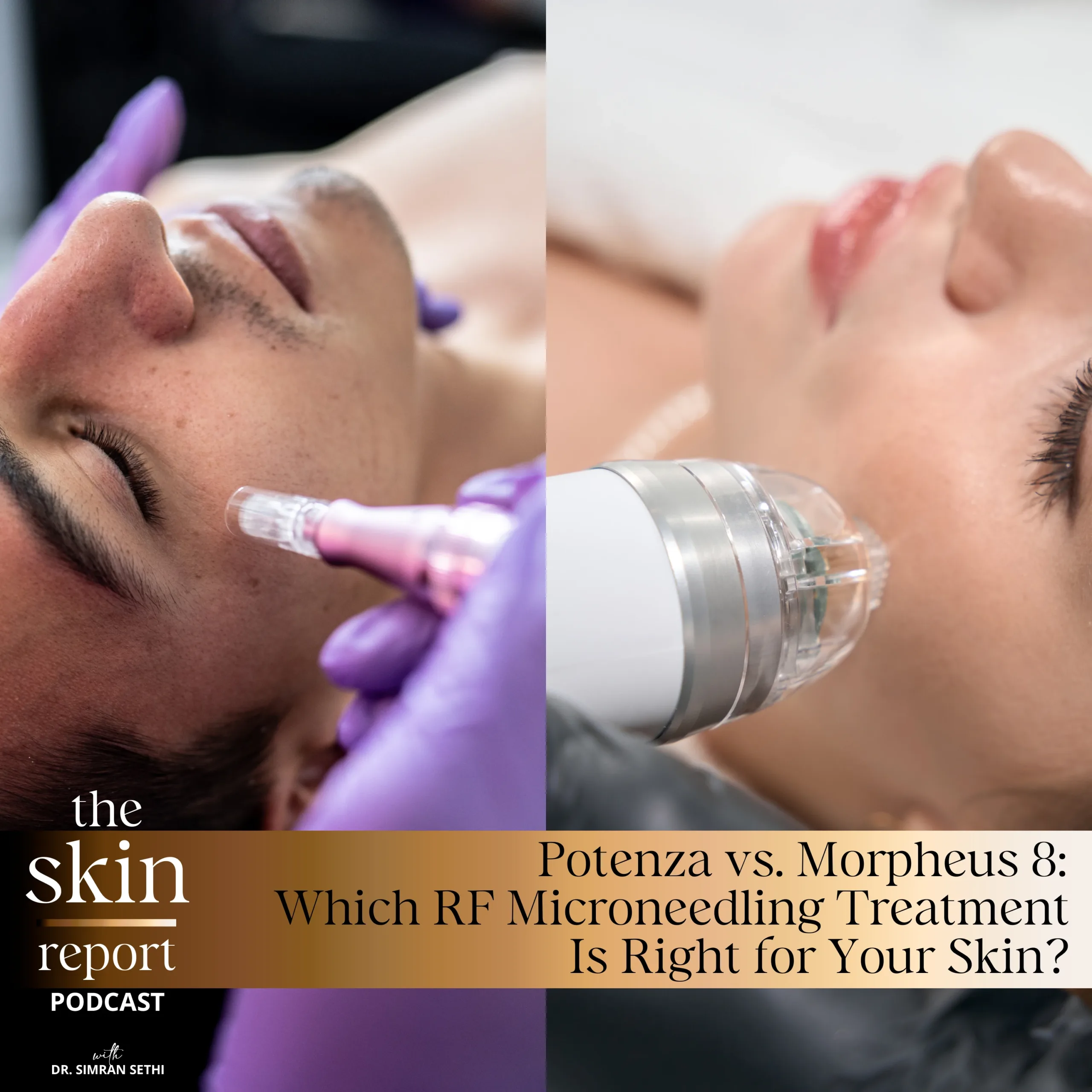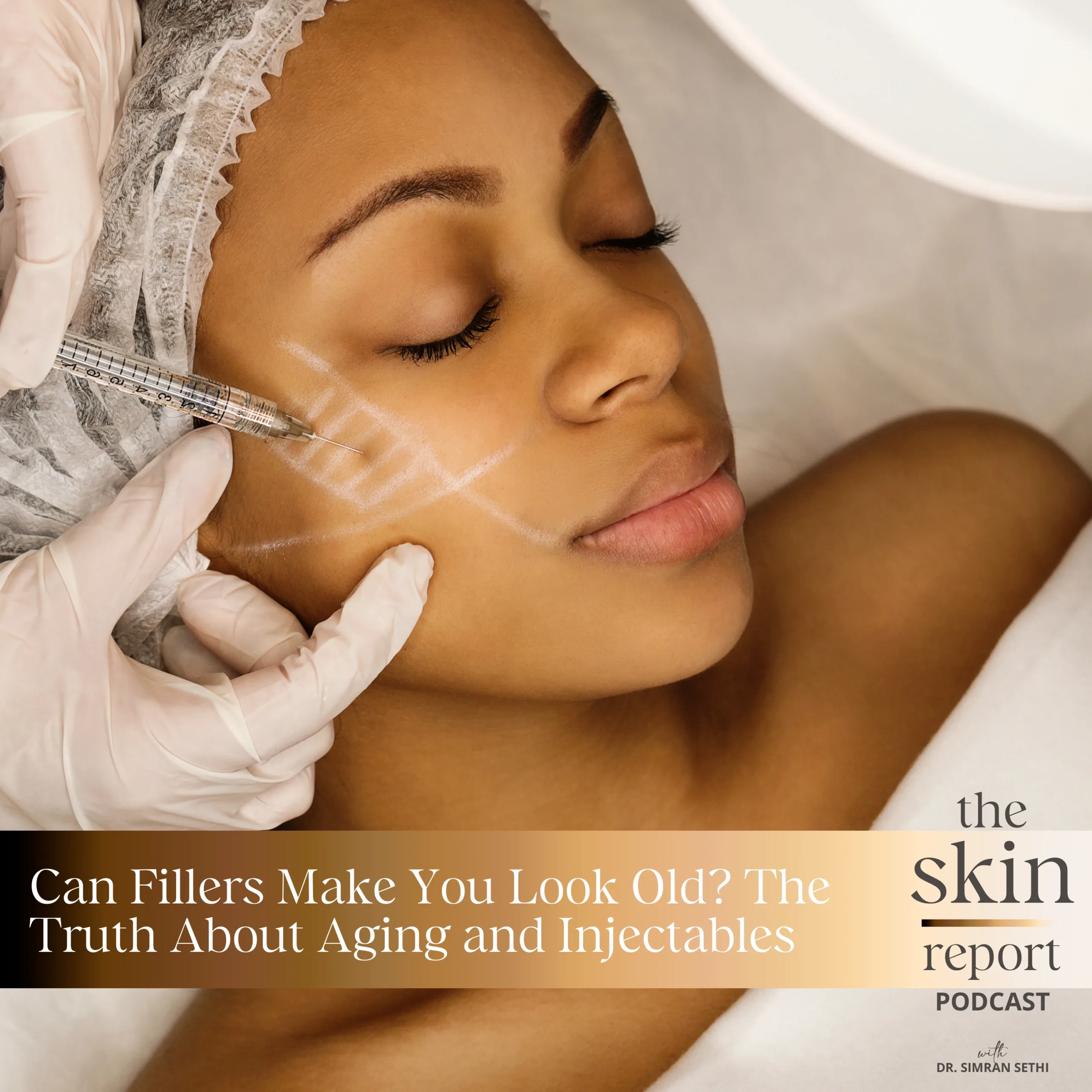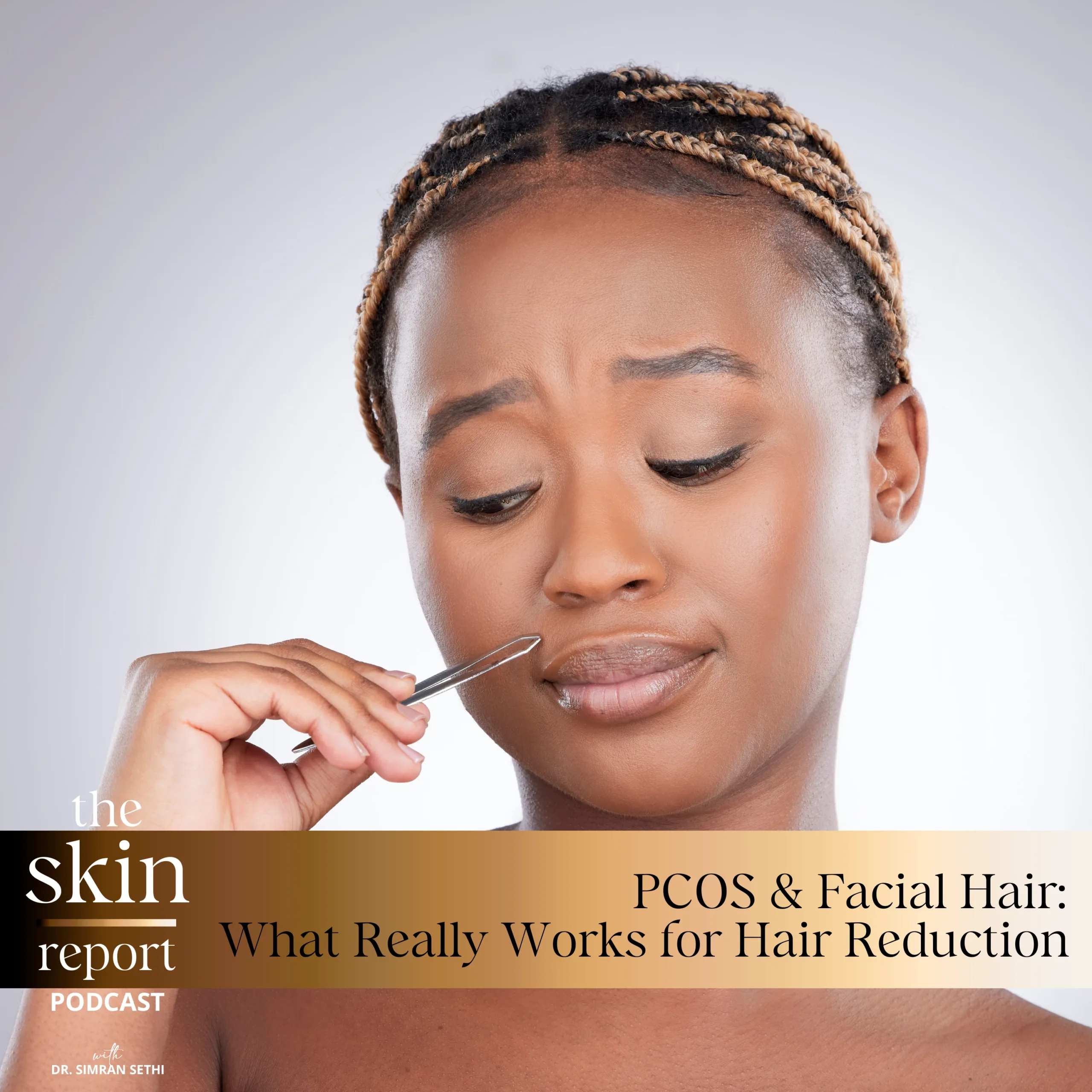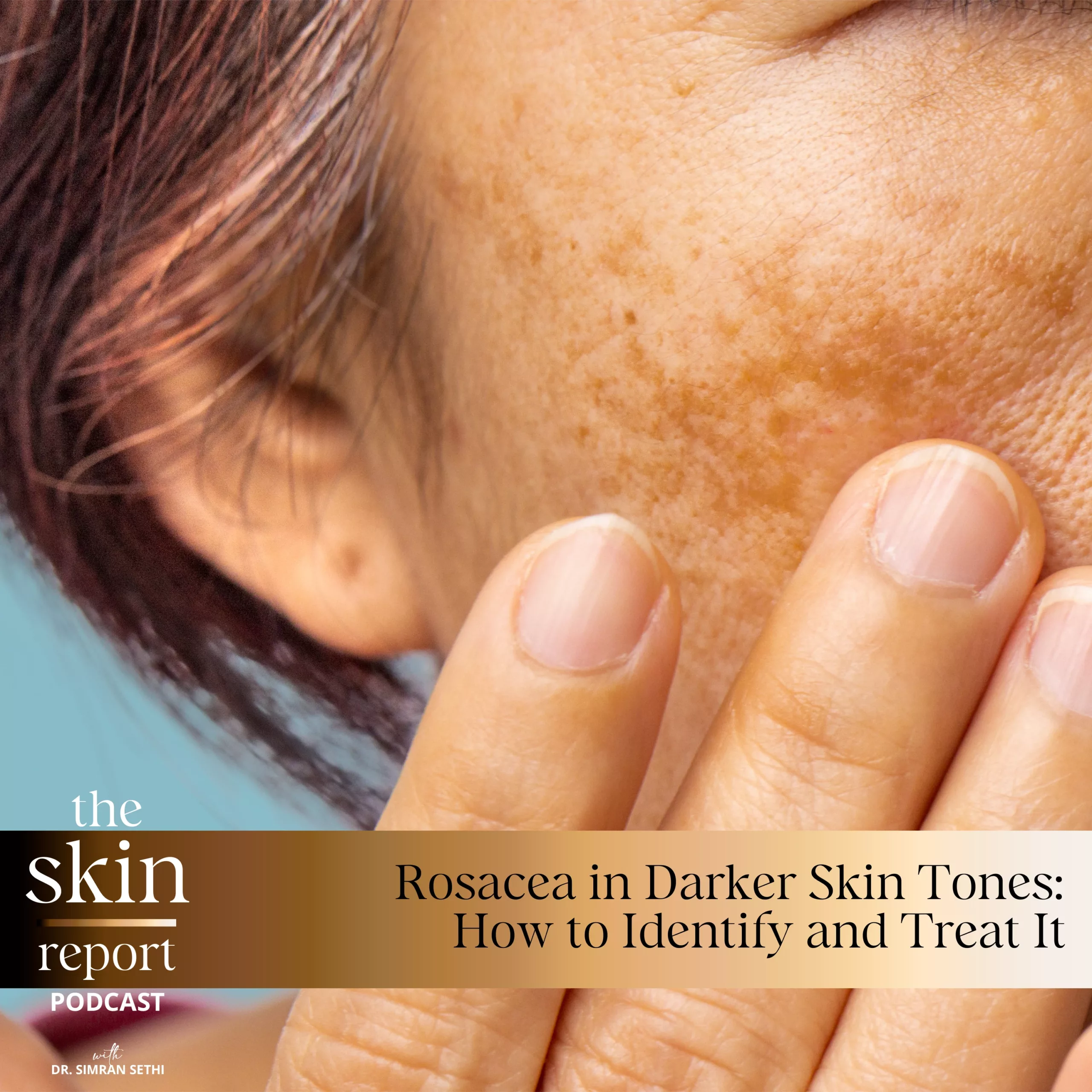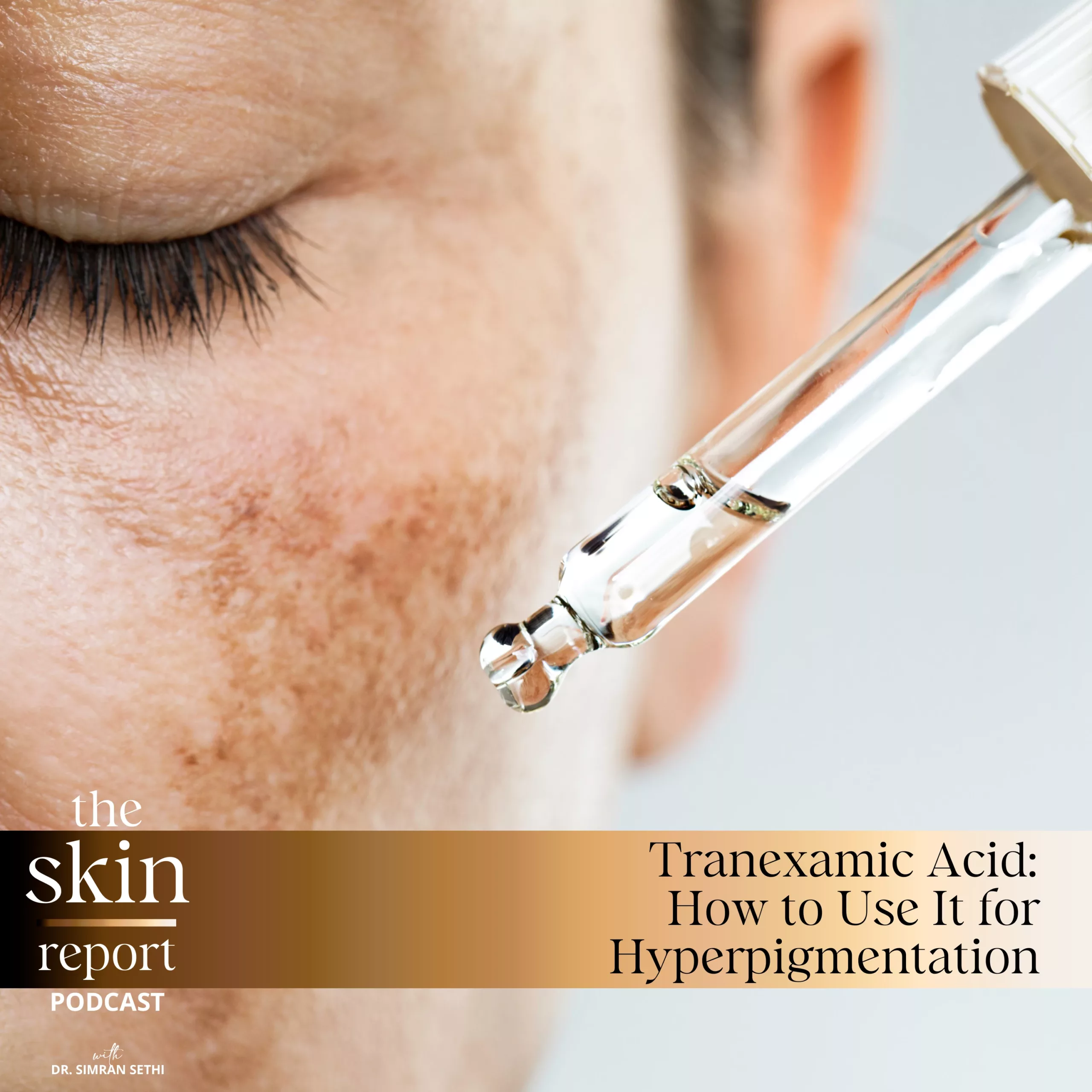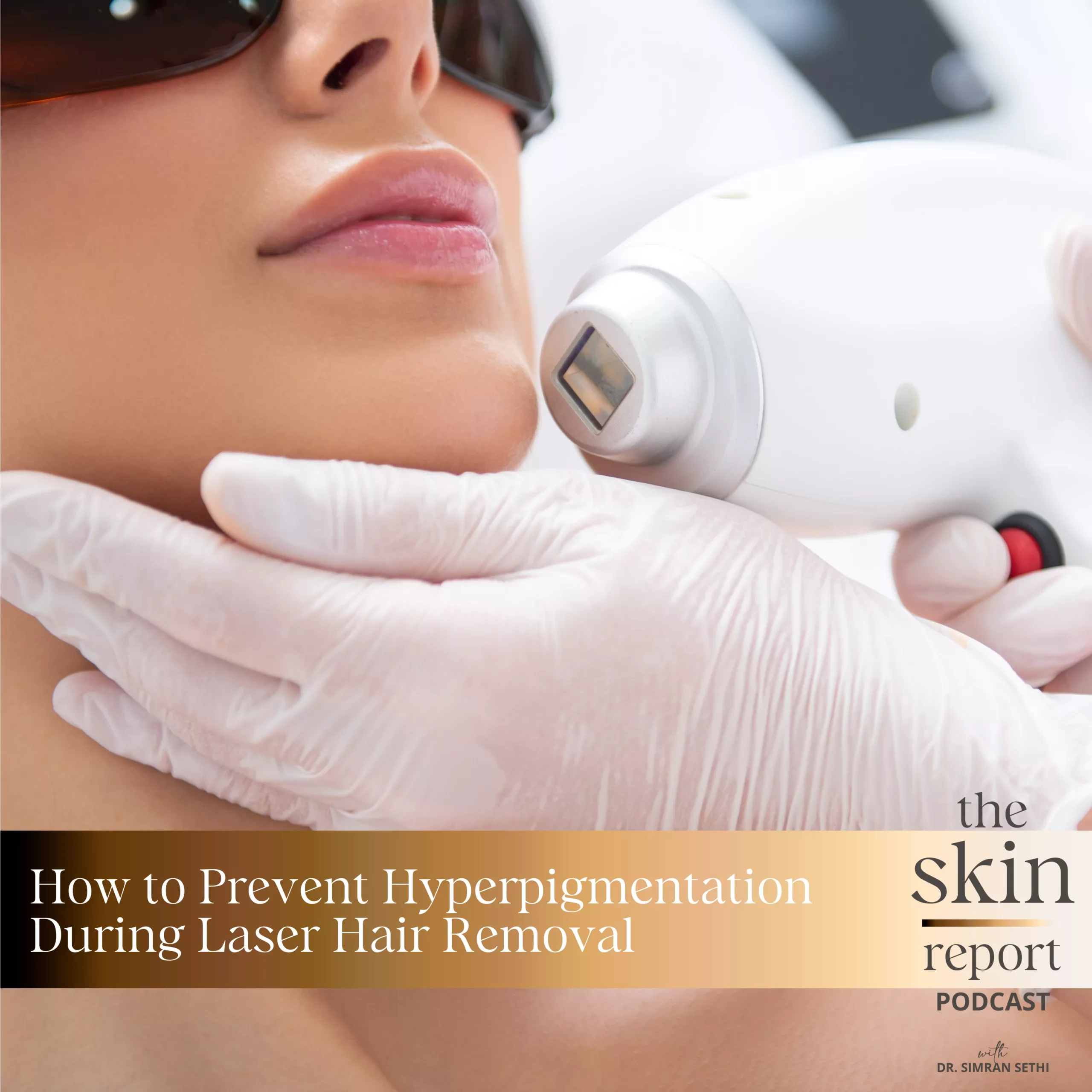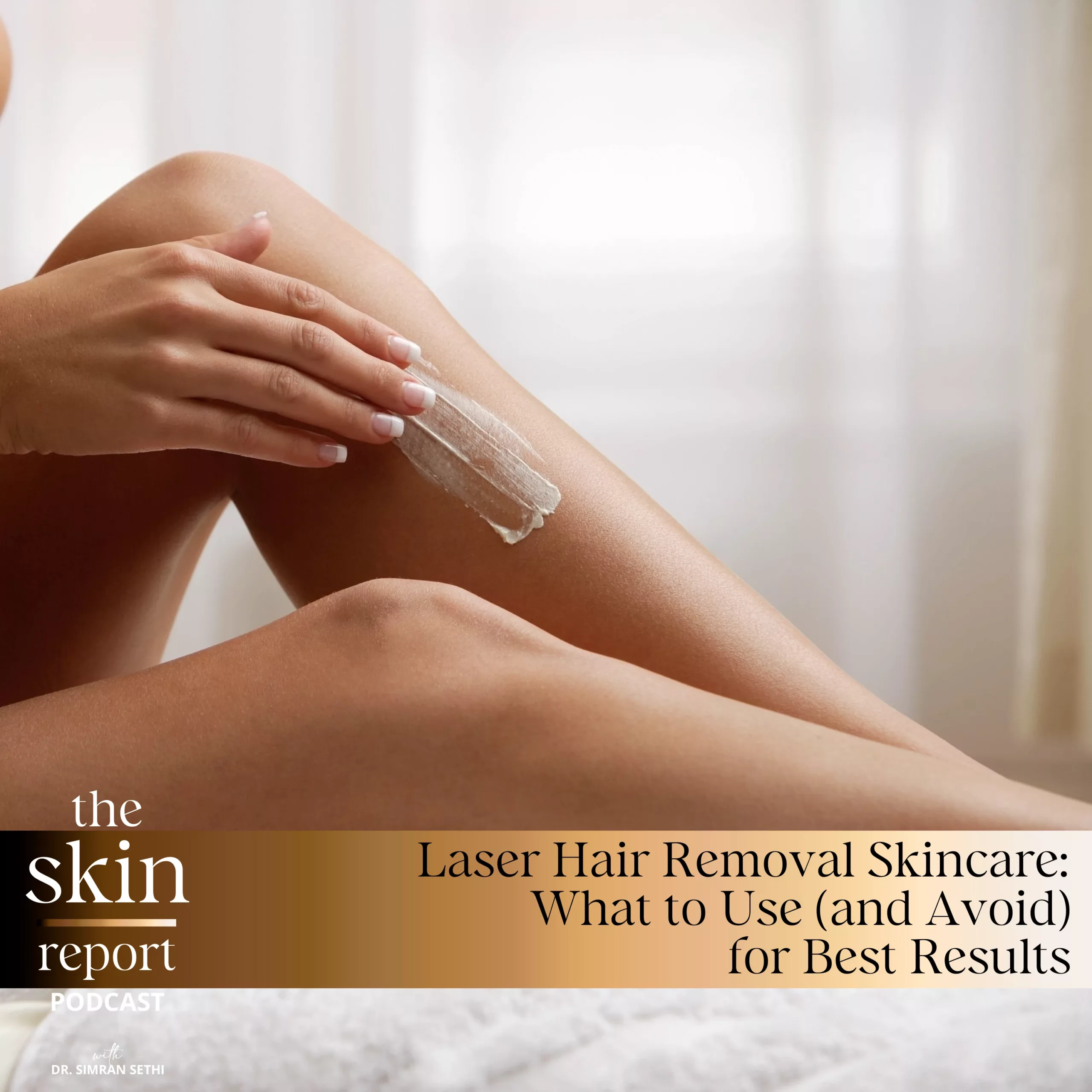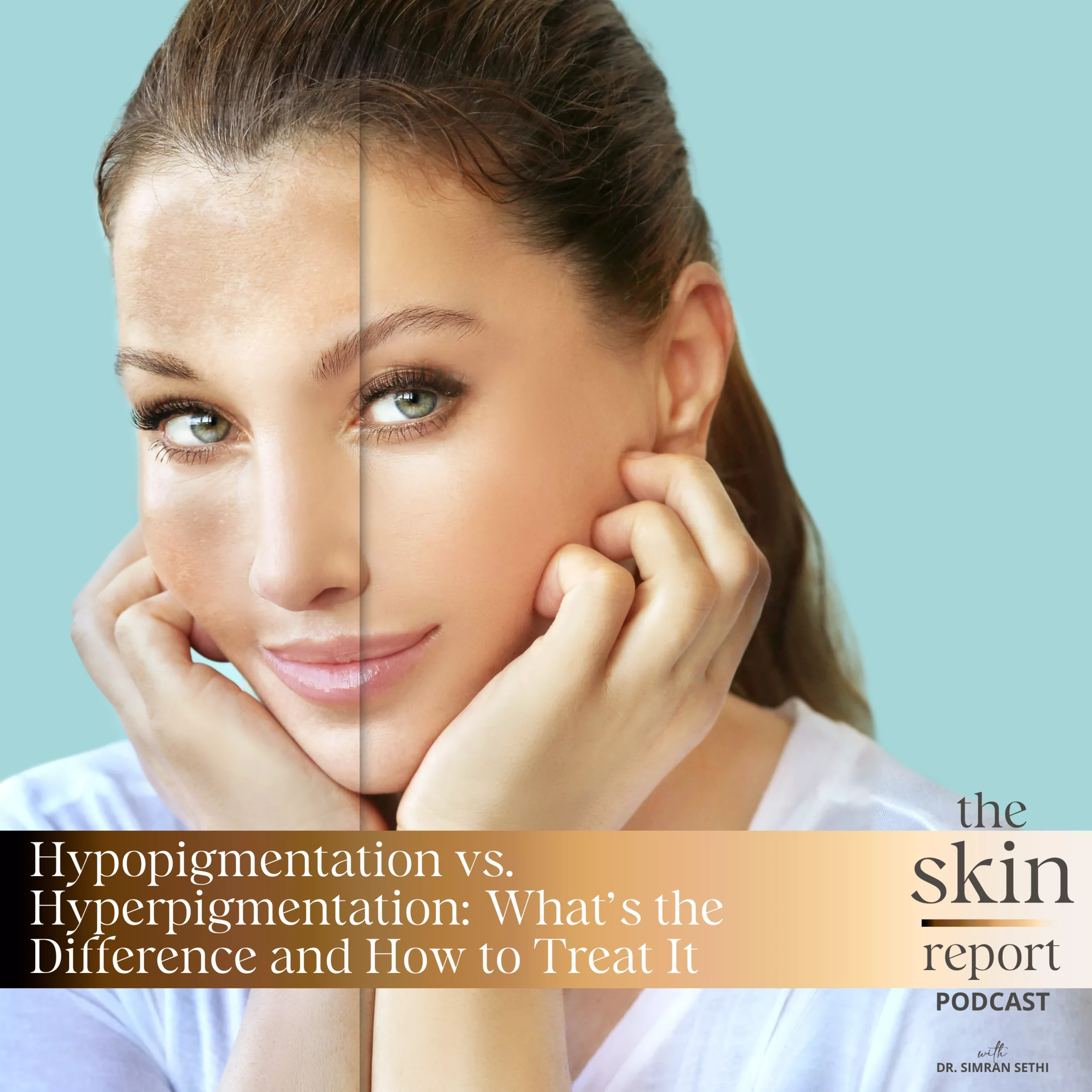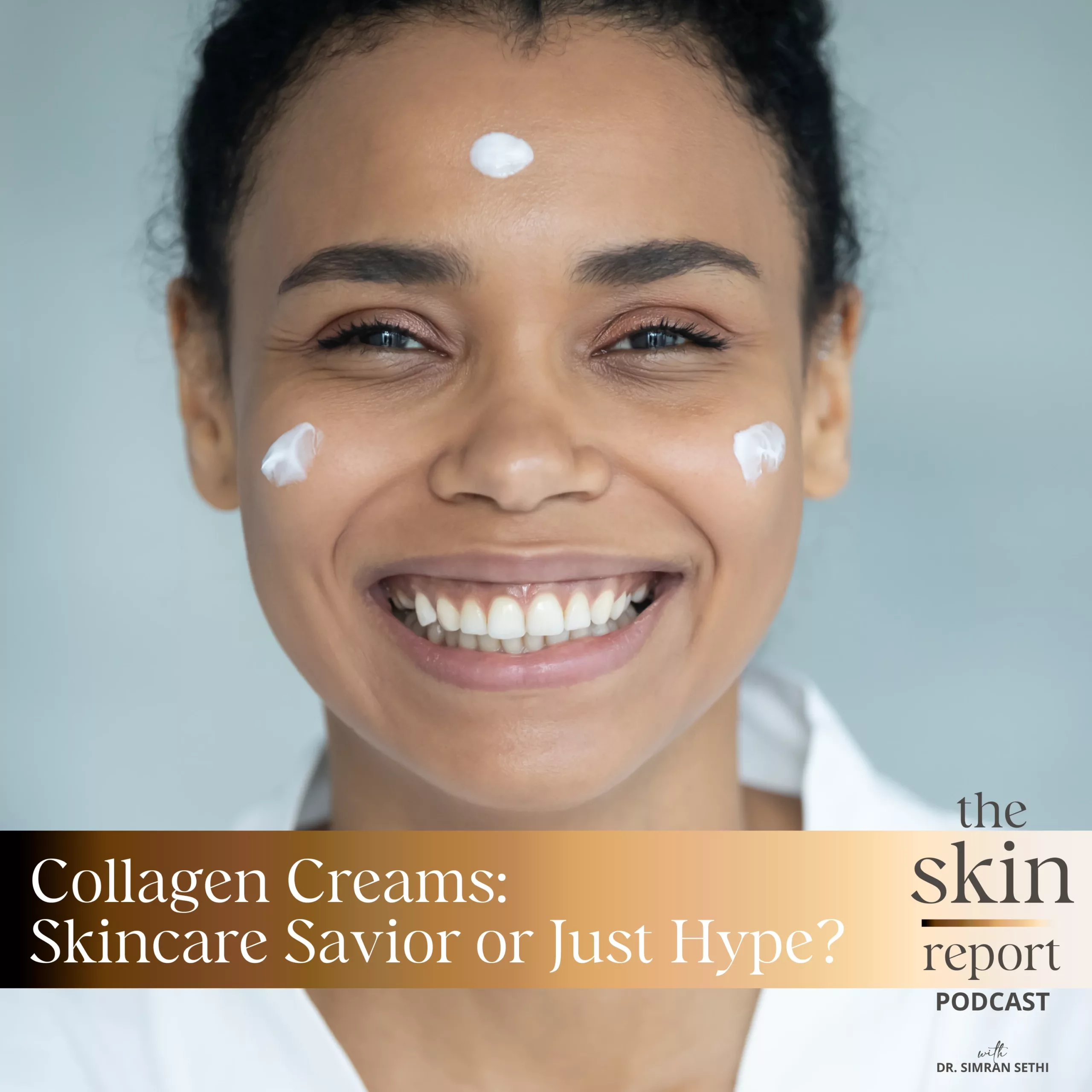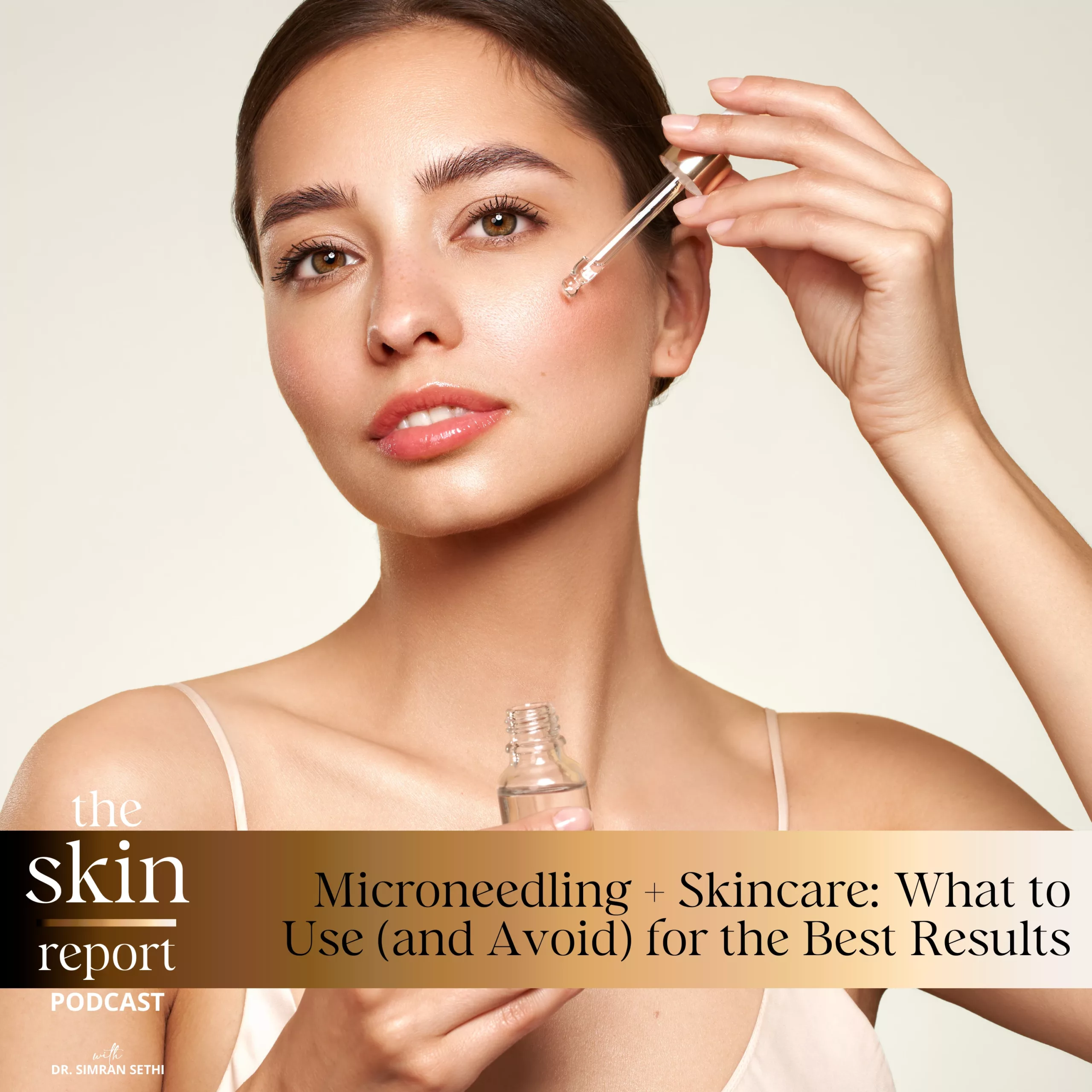Skincare Strategies for Darker Skintones:
Ingredients, Routines, and Misconceptions
Are you looking for effective skincare solutions for darker skintones?
The Skin Report discusses the specific skincare needs and challenges faced by individuals with darker skin. The conversation highlights the importance of tailored skincare formulations that focus on skin health and barrier protection, rather than harsh bleaching or exfoliating treatments. Learn about the role of ingredients, the Fitzpatrick scale for skin typing, and get expert recommendations for an ideal skincare routine for darker skintones.
Discover personalized skincare insights for darker skintones, and join us in embracing the beauty of healthy, even-toned skin through informed care and targeted treatments.
Exclusive Offer for the Skin Report Audience: use SKINREPORT20 in the shopping cart to receive 20% discount
LEARN MORE!
The Skin Report Podcast : Subscribe and Download!
Hello, everyone and welcome to The Skin Report. Today we are going to talk about skincare products and ingredients for a darker skintone. Hi, Shaheera.
Hi. Thanks for having me.
Thank you.
As outlays today, the topic is very personal because I have darker skin, you also do. And I think it may answer a lot of questions that people have or may not realize that they needed an answer for, which is skincare for their darker skintone.
Yes. It’s so interesting because I think there is generally more recognition for skin tone specific solutions. We know that the makeup industry has done a really good job with that and the skincare industry is just starting to recognize that, you know what, we do need different types of skincare or skin ingredients for specific skin issues that people with darker skin have.
Obviously there are a lot of ingredients out there. When it comes to formulation of skincare, yours is medical grade for example. Why is skintone such a huge heart of the formulation process and just the actual philosophy of skincare routine?
So if you look back at what kinds of solutions people with darker skintones have used for their specific skintone problems, the first thing is people with darker skintones tend to have more hyperpigmentation issues and that could include dark spots after they’ve had acne. It could also include things like melasma. Those are skin conditions that are more prevalent in those skin types. And it could also just mean uneven skintone from just skin aging-
Or sun damage.
… or sun damage. So typically what people have been resorting to has been a lot of bleaching and bleaching in many different ways. And bleach, in general, is an acid. And I’m not saying people are applying actual bleach, but they’re applying products that are bleaching agents or they’re very high concentration exfoliants that will help clear skin. That’s not going to happen when you have a darker skintone.
If you apply something that’s very acidic, like a high concentration exfoliant, like a glycolic or lactic acid or you apply a bleaching agent, you’re actually going to break your skin barrier. And melanin, the pigment that gives us our skintone, its job is to protect our skin. So it goes into overproduction when your skin senses an insult in the skin barrier and that’s where the problem is. In the skin care industry, I should say, bleaching has been a common solution for a lot of hyperpigmentation issues and we really need to change that thought process.
And instead of doing any kind of bleaching, we should be focused on skin barrier protection and building healthy skin. Healthy skin is always going to be even, it’s going to be clear, there’ll be less melanin production because if your skin is so healthy, it’s protected. It doesn’t need to fight insults by producing more melanin. And to achieve that, again, there’s not one cream or one ingredient that’ll do that. And that’s the other thing, a lot of people think that-
There’s spot treatment.
Yes, a lot of people rely on, “Oh, I’m going to take this one ingredient-based product line because it’s for lightening my pigmentation.” No, that’s not how skin works. Skin is a cycle. It renews in a cycle and it renews continuously. When you’re looking at making your skin healthy so that you have even skintone, even pigmentation, you need to incorporate product that nourish every part of that skin renewal cycle.
So if, one, because there is a need for exfoliators, there’s a need for glycolic gel, there’s a need for things to kind of help speed up that, like you say, that exfoliation process or your skin renewal. So if someone does want to incorporate and they have a deeper or darker skintone, if they want to incorporate something that they’re hesitant to because they’re like, this is going to burn my skin, it’s going to dry out my skin, it’s going to make my skin itchy or break their skin barrier. If they want to incorporate a glycolic gel or their exfoliator or a brightening product, what is the key thing that they need to look out for to ensure that they have that most optimal skin renewal?
If you have a darker skintone, doesn’t mean you can’t exfoliate. It doesn’t mean you can’t use glycolic or lactic acid. But what it does mean is that every time you use one, it needs to be paired with an anti-inflammatory botanical or it has to have some mechanism that is skin protecting at the same time. Glycolic acid is excellent because it basically just sort of eats up all the dead debris that is sitting on our skin and it makes our skin really nice and clear and ready to better penetrate active ingredients from skincare products that we apply on top, but it’s also very acidic. So if it’s balanced with something that’s anti-inflammatory, it will protect your skin barrier.
And actually when I did my product formulation, that was the key to consciously make a formulation that delivers an effective, clinically proven active ingredient. But it also does so in a way that it doesn’t break the skin barrier and augment excess pigment production. And every product formulation is a pairing of that. And if you don’t have products that are paired naturally like that, you have to take that extra step. But yeah, so if you’re going to use a plain glycolic gel, make sure you have a lipid-rich moisturizer with it.
When you refer to skin tone, do you normally use the Fitzpatrick scale?
Yes. So I use a Fitzpatrick scale. The Fitzpatrick scale basically categorizes skintones based on how your skin reacts to the sun. A Fitzpatrick one through three will tend to burn in the sun with exposure. A Fitzpatrick four or greater, what we consider darker skintone, they don’t tend to burn in the sun, but they do tend to get darker in the sun. They don’t experience a sunburn if they’ve been in the sun for a long time. People of Fitzpatrick four and five include people from South Asia, the Middle East, East Asia. Fitzpatrick five through six is more African descent. So those are sort of the ethnicities that tend to fall into those skin types based on the Fitzpatrick scale.
People can see where they fall on that scale from lightest to deep darkest skintone.
Exactly. And if you’re very light, but it doesn’t mean it changes your Fitzpatrick. So you could be a very light person from South Asia, that still means you’re a skin type four.
To kind of tie a bow on a skincare routine, what is the ideal skincare routine for somebody who falls on that Fitzpatrick scale four through six? So for reference, medium dark skin to deep, deep, dark skin, what does their ideal routine look like?
So the ideal routine should be using a cleanser that doesn’t over-dry your skin so that you can wash up all that dead skin and debris that we build every single day and also improve your product penetration. Have a vitamin C or any kind of antioxidant serum that you apply next. Apply a moisture sealing agent like a hyaluronic acid, snow mushroom or something that seals your natural moisture in so that you’re not constantly losing moisture to the air. And then, of course, sunscreen. And that’s a very typical daytime routine.
And at nighttime you would do all those things, but apply a retinol. Retinol speeds up your skin renewal cycle and it’s appropriate for any skin tone, of course. But when darker skintones, make sure you’re pairing that retinol with some sort of moisturizer so that the drying effect that retinol has doesn’t make your skin barrier break and make you actually hyperpigment.
If anyone has any questions about the ideal skincare routine for any skintone, any placement on the Fitzpatrick scale, what do you recommend they do?
They can definitely ask us questions in our comments. They can also make episode topic recommendations. And thank you again for being with us today. Please share, like and interact with us on our platforms because we’re always checking and happy to get back to you.


